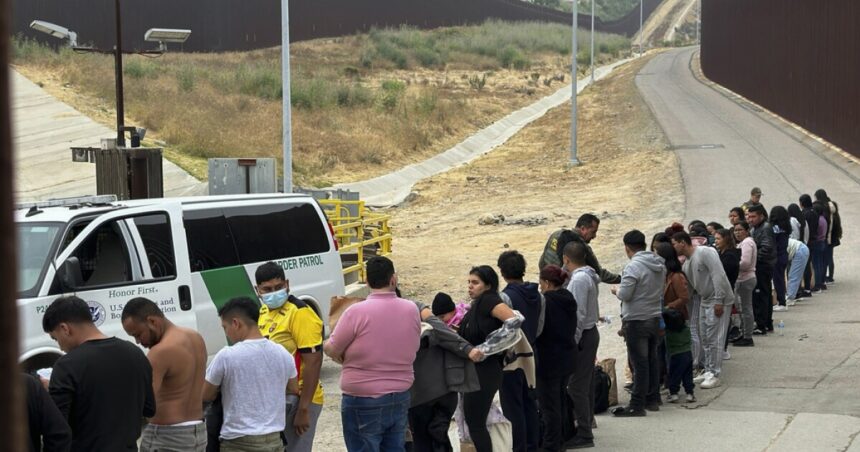Concerns have been raised by advocates regarding a recent executive order in Texas that may deter immigrants from seeking medical treatment.
Texas Gov. Greg Abbott signed an executive order mandating the state to “collect information regarding patients who are not lawfully present in the United States and the cost of the care provided to such patients.”
The order is scheduled to take effect on Nov. 1.
Christian Piatt, the spokesperson for the Human Rights Initiative of North Texas, which offers legal assistance mainly to undocumented asylum-seekers, expressed his concerns. Piatt stated, “The consequences of this, whether intentional or not, will make individuals feel intimidated and hesitant to access essential services that we consider all individuals are entitled to. They originate from a country where the government is unreliable and have faced persecution by their government, so they will naturally be apprehensive of any government authority.”
RELATED STORY | Lack of federal funding for migrant crisis puts nonborder cities in tight spot
The office of Gov. Abbott declined an interview but directed us to their statement announcing the order, stating, “Texans should not have to bear the financial burden of medical care for illegal immigrants.”
As per Abbott’s office, once the final expenses are determined, the state will pursue reimbursement from the federal government.
This initiative extends beyond Texas and is part of a broader campaign to prevent American taxpayer funds from financing healthcare for undocumented immigrants.
In August, 15 Republican attorneys general initiated legal action against the Biden administration over a regulation enabling DACA recipients to apply for healthcare coverage under the Affordable Care Act.
Kansas Attorney General Kris Kobach criticized the Biden administration for “violating federal law.”
Florida hospitals implemented a similar monitoring system and released their initial report this year.
According to the state, undocumented immigrants represented 0.8% of hospital visits between June and December 2023 — accounting for less than 1% of total costs amounting to $566 million.
Alexis Tsoukalas, a senior policy analyst with the Florida Policy Institute, emphasized, “We recognize the importance of immigrants to Florida, including undocumented immigrants. We are aware that undocumented immigrants contribute approximately $1.8 billion in state and local taxes just in Florida alone. Even if someone is not in the workforce, such as a child or elderly individual, they still hold value as a person.”
There is evidence suggesting that such policies can deter migrants from seeking medical assistance.
RELATED STORY | Texas governor says he’s sent 95,000 migrants to ‘sanctuary cities
A Politico analysis indicated a significant decrease in Medicaid spending for undocumented immigrants in Florida after hospitals began inquiring about patients’ immigration status.
Additionally, a 2020 survey revealed that a quarter of mixed-status families refrained from accessing certain government aid programs for fear of affecting their future green card applications.
In a statement, the Texas Hospital Association emphasized that hospitals are mandated by law to provide life-saving treatment to all individuals, regardless of their ability to pay or legal status.





